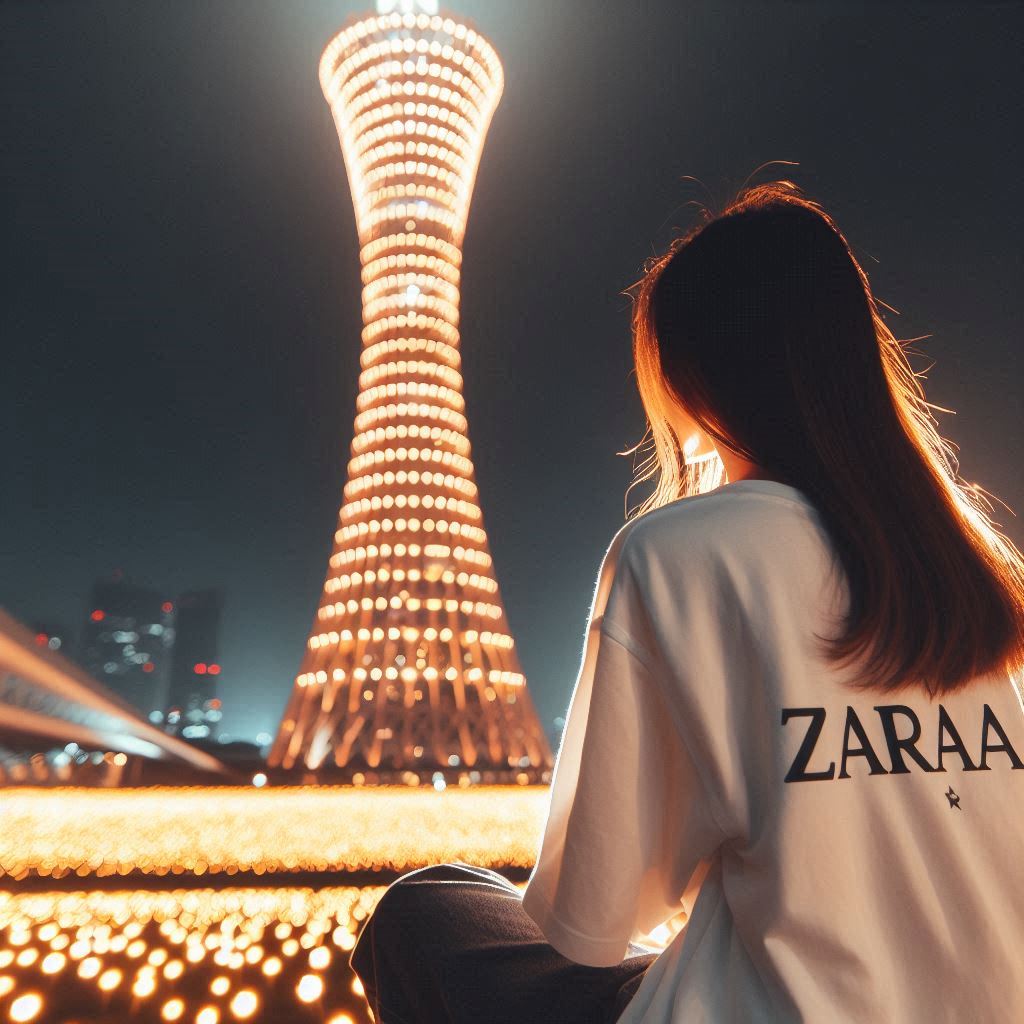Zara: The Royal Charm of a Name Meaning Princess and Blooming Flower
A deep dive into the chic, timeless, and multicultural name that reigns supreme across the globe.
What is it about these four letters that makes them so universally appealing? Join us as we explore the multifaceted heritage of Zara, from its roots as a “blooming flower” to its noble status as a “princess,” and understand why this name continues to be a global phenomenon.

The Multifaceted Origins of Zara
One of the most compelling aspects of Zara is that it isn’t tied to a single culture. Instead, it blossomed in several linguistic gardens, each one adding a unique petal to its overall significance.
The Arabic Radiance: A Blooming Flower
In Arabic, Zara is a variation of Zahra ($زَهْرَاء$), which means “brilliant,” “bright,” and “luminous.” This is derived from the root *z-h-r* ($زَهْر$), meaning “flower.” This origin paints a picture of radiant beauty and natural splendour. It connects the name to the freshness of a blooming flower and the hope of a new dawn. This meaning holds profound spiritual weight in the Muslim world due to its association with Fatimah al-Zahra ($رَضِيَ ٱللَّٰهُ عَنْهَا$), the beloved daughter of the Prophet Muhammad ($ﷺ$). Her title “al-Zahra” was given to her for her radiant and luminous face and spirit. This connection imbues the name Zara with virtues of piety, compassion, resilience, and wisdom, making it an exceptionally cherished name in communities like ours in Pakistan.
The Hebrew and Slavic Royalty: A Princess
In the Western world, Zara is widely known as a form of the Hebrew name Sarah ($שָׂרָה$), which means “princess.” This regal meaning has defined its character for millions, evoking images of nobility, grace, and leadership. This interpretation is reinforced by its Slavic roots, where *’tsar’* (or *’czar’*) means emperor, making Zara a feminine equivalent—an empress or princess. This royal connection is not just ancient history; it’s embodied in modern times by figures like Zara Tindall, the granddaughter of Queen Elizabeth II, whose presence has cemented the name’s noble status in the public consciousness.
The Persian Preciousness: Gold
Adding another layer of richness, the name has roots in the Persian language. The Persian word *’zar’* (زر) means “gold.” This etymology associates the name Zara with immense value, preciousness, and brilliance. Like gold, a person named Zara is seen as rare, treasured, and possessing a timeless and radiant quality. This meaning beautifully complements the others—a princess as precious as gold, a flower with a golden brilliance.
Zara is a symphony of powerful meanings: a radiant flower, a noble princess, and a substance as precious as gold. It is a name that represents beauty, leadership, and intrinsic value all at once.
Zara on the World Stage
With such strong and beautiful origins, it’s no surprise that Zara is a global sensation. Its appeal is remarkably broad:
- In the Muslim World: It is a timeless classic, beloved for its floral meaning and, most importantly, its connection to Fatimah al-Zahra.
- In Europe and the Americas: It’s a top-ranking name, seen as sophisticated, strong, and stylish. The global fashion retailer ZARA has further amplified its image as modern and chic.
- Cross-Cultural Appeal: Zara is short, phonetic, and easy to pronounce in dozens of languages, making it a perfect international name that feels both familiar and special everywhere it’s used.
The Numerology and Inner Strength of Zara
The character of a Zara is often described as confident, charismatic, and graceful. She is a natural leader, yet she also possesses a vibrant and approachable warmth. This profile is perfectly mirrored in the name’s numerology. In the Chaldean system, Zara (Z=8, A=1, R=9, A=1) adds up to 19, which reduces to the number 1 ($8+1+9+1 = 19 \rightarrow 1+9 = 10 \rightarrow 1+0 = 1$).
The number 1 is the number of the leader, the pioneer, and the originator. It represents independence, ambition, determination, and a powerful drive to forge one’s own path. A person with the Life Path Number 1 is a natural trailblazer, unafraid to take charge and unwilling to simply follow the crowd. This aligns flawlessly with the name’s meaning of “princess”—a born leader—and “gold”—a standard of excellence. The number 1 energy gives a Zara the inner strength and self-belief to live up to her powerful name.
Conclusion: A Name of Timeless Reign
Zara is a name that truly has it all: cross-cultural appeal, a rich history, and a constellation of beautiful meanings. It blends the dignity of royalty with the delicate beauty of a flower, and the timeless value of gold. It is simultaneously classic and modern, powerful and elegant. Whether you see it as a name fit for a princess, a tribute to a radiant flower, or a nod to chic global style, Zara reigns supreme as a name of universal and enduring charm.

